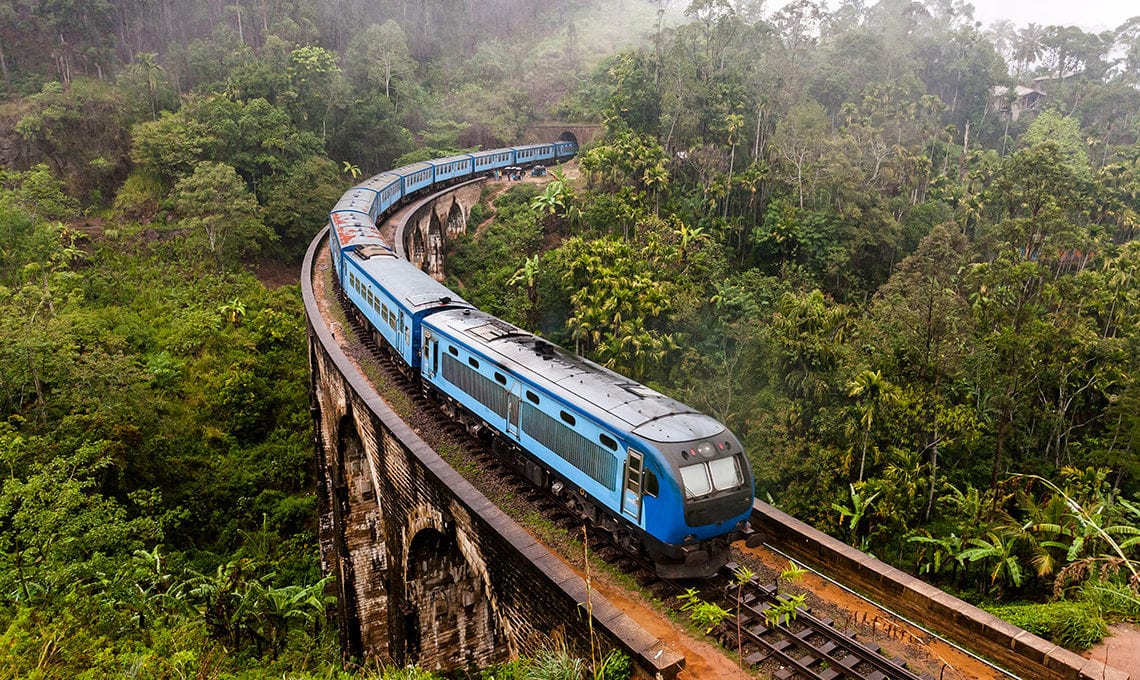
On track for faster railways in Sri Lanka
Digital technologies underpinned by LEARN (Lanka Education And Research Network) enabled PhD students to continue to participate in a railroad research project financed by the World Bank, the Department of Civil Engineering at University of Peradeniya during COVID-19.
A bigger engine is not enough to make a train go faster. If the tracks are not modified, they cannot sustain the higher speed and the situation will become dangerous. A project financed by the World Bank, the Department of Civil Engineering at University of Peradeniya is on route to identify the optimal solution for the relevant modification of the railroads of Sri Lanka.
Rail materials supplier Pandrol, headquartered in Belgium, is a potential industrial partner. Pandrol’s role will be supplying the materials to be tested.
“Indirectly, the project has actually benefitted from the situation around COVID-19. If the pandemic had not forced us to convert all our activities to digital formats, we would probably never have had the chance to establish contact with Pandrol and to conduct our meetings with them so easily,” says project coordinator Dr. S. K. Navaratnarajah, (Nava for short), Senior Lecturer, Department of Civil Engineering, University of Peradeniya.
Rubber is the key material
The AHEAD project (Accelerating Higher Education Expansion and Development) is a development-oriented research project. The project in Sri Lanka began in 2019 after Nava and the team won a competitive tender for a 40 million Sri Lankan rupees grant from the World Bank.
Of this amount, the project team has invested the 24 million Sri Lankan rupees in setting up world class facilities for railroad materials testing. In relation to increased train speed and operating heavy haul trains, the key material to investigate is the rubber which provides the necessary energy absorption and dampening of vibrations in the steel and concrete of the railroad tracks. Without dampening, the stiffness of the steel and concrete would be too high, and even a minor increase in speed could be fatal. However, if the dampening is overdone a range of other problems will occur. In other words, the trick is to choose a rubber composition which secures a dampening within an optimal interval and at the same time absorbs undue energy created by faster and heavy haul trains. This, however, is easier said than done since the optimal solution needs to take rubber properties, track layer composition (especially ballast layer, a key rock particle layer in the track), and other local properties into account.
“Since Pandrol is a world-leading supplier of railroad materials, they obviously have top testing facilities too, allowing for a fruitful collaboration. Through this interaction we are confident that we may identify a rubber composition which will be optimal for the conditions in Sri Lanka and even other parts of the world too,” explains Nava.
Converted to e-learning in just two weeks
About 15 people at the department – faculty members, PhD students, M. Phil. Students, and other students – are employed in the AHEAD project. Importantly, the focus is not only development of railroad materials but also contributing to the railway industry and education of future railroad engineers by providing post-graduate courses and rail-related research opportunities. Sri Lankan railways is also supporting the project team by providing track materials for both lab and field testing.
All these activities came in jeopardy as COVID-19 lockdowns were introduced by March 2020.
Fortunately, the project team had already had contact with national research and education network (NREN), LEARN (Lanka Education And Research Network) some months before.
“Not least had they introduced us to the possibilities in e-learning. I admit that we hadn’t really grasped just how beneficial their digital solutions could be for us. However, as COVID-19 lockdowns came we immediately looked in that direction. And in just two weeks we had online teaching up and running. We are truly thankful to LEARN for enabling this,” says Nava.
Since, the department has converted not just education to digital formats.
“Everything we did before the pandemic, is done over Zoom today,” says Nava, continuing:
“I often hear people talking about how devastating COVID has been for various activities. I must say, in our case the pandemic has also provided a chance to learn. When people say that at least they have gotten more spare time because of the lockdowns I totally disagree. I am busier than ever. I haven’t had a holiday since the pandemic hit!”
For more information please contact our contributor(s):

